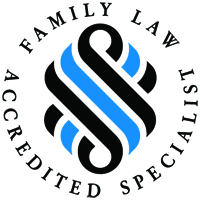Child support is a complicated and often contentious area of law. Given the number of variables involved, obtaining advice from a specialised family lawyer can provide you with clarity and certainty about the best steps you should take.
Note: We are not a child support agency. We are lawyers who can assist you with child support matters.
We can help assess your entitlements to child support, including what you may already be owed, or what you would be required to pay. All matters involving children are emotionally fraught, so allow us to take some of the burden from your shoulders.

How is child support assessed?
The amount you are required to provide can be determined by having a Child Support Assessment.
An assessment occurs through Services Australia, which calculates payments based on a legislative formula.
The formula is based on both parents’ income, how much time each parent cares for the child, the child’s age, whether the parents have any relevant dependent children living with them and whether the parents have any children in other child support cases.

Adjustments on child support
Parents required to pay may be able to have ongoing child support payments adjusted in circumstances where the paying parent is making prescribed non-agency payments in addition to the payment of child support.
Prescribed non-agency payments include childcare costs or school fees, essential medical and dental items, some motor vehicle costs and payments towards the rent or utilities of the person receiving the payment.
You can estimate the amount of child support that is payable by using the Services Australia Child Support Estimator and entering your details into the calculator to obtain a guide.
Parenting plans and orders with Turnbull Hill Lawyers
Get reliable advice and support with children’s matters after separation. Whether you would like to put a parenting plan or parenting order in place, our dedicated Family Law team is here to help you navigate the entire legal journey smoothly.
Trusted Family Law solicitors
Equipping NSW families with invaluable legal services since 1969, our parenting agreement lawyers possess the commitment, experience and resources to champion your child’s best interests.
Genuine value-for-money
Ensure your parenting agreement is structured correctly with the highest standard of legal services. We strive to achieve optimal outcomes for our clients as cost-effectively as possible.
Personalised support
No two families are the same. That’s why our family lawyers always take the time to understand your unique needs and objectives when drafting the legal documents for a parenting plan or order.
Efficient service
Our Family Law team manages each case with exceptional efficiency and, when necessary, urgency to meet your deadlines. We are readily accessible and proactive throughout this process.
Reliable solutions
Prepare a fair, comprehensive and enforceable parenting agreement. We harness practical and creative strategies to help you overcome challenges wherever possible – and move on with confidence.
Unwavering commitment
Turnbull Hill Lawyers has been trusted by thousands of families through word-of-mouth referrals. Our unparalleled reputation lies in our dedication to delivering personable and reliable service with meticulous attention to detail.
Discover leading legal support today
Make the most of a personalised action plan from our parenting agreement lawyers.
Frequently Asked Questions
There is a basic 8 step formula for parents with only one child support assessment. This is the most commonly used formula.
- Work out each parent’s child support income. This is a parent’s adjusted taxable income minus a self-support amount and any relevant dependent allowance.
- Work out the parents’ combined income.
- Work out each parent’s income percentage by dividing each parent’s income by their combined total.
- Work out each parent’s percentage of care. This is the amount of care provided by a parent to the child.
- Work out each parent’s cost percentage. This is calculated using the Care and Cost Table.
- Work out each parent’s child support percentage subtracting the cost percentage from the income percentage for each parent. This is called the child support percentage and determines if a parent pays or gets paid child support.
- Work out the costs of each child based on the parents’ combined total income. This is done using the Costs of Children Table.
Work out the total amount of child support payable by multiplying the positive child support percentage by the costs of the child.
If a parent does not agree to the assessment made by Services Australia, they can lodge an Application to Change your Assessment. To be successful, an applicant must demonstrate one of the 10 different types of special circumstances, that the change is just and equitable and that it is otherwise proper.
Our family lawyers can assist you with completing this form if required.
Parents can enter into a child support agreement made by consent to provide child support rather than relying on the child support formula method. A formal child support agreement between both parents can cover cash payments, non-cash items such as school fees or a combination of cash payments and non-cash items.
There are two types of child support agreements recognised by Services Australia, these are:
- Limited Child Support Agreement, which are a formal agreement between the parents about child support that does not need independent legal advice. There must be a child support assessment in place before it can be accepted by Services Australia and that payments put in the agreement must be equal to, or more than, the annual rate in the assessment. This type of agreement can be terminated by either party after a period of three years.
- Binding Child Support Agreements, which are a written agreement between the parents about child support payments. Each party must obtain independent legal advice before entering or terminating this type of agreement. A Binding Child Support Agreement provides for long term arrangements and can only be terminated in extremely limited circumstances. They may provide for a lower rate of child support than what would be payable under the assessment formula. This form of agreement can include lump sum payments and a transfer of property which is then able to be credited to a child support liability instead of periodic payments.
Parents need to consider the effect of entering an Agreement on any ‘Family Tax Benefit Part A’ payments that the parent receiving child support may be entitled to.
Our family lawyers can assist you by drafting an agreement that meets your unique requirements and the best interests of your children.
Lump Sum Payments
It is possible for a parent to make a lump sum payment through a Child Support Agreement. A lump sum payment to a parent is treated as a credit towards child support payments. It is not a replacement of periodic payments and does not alter the assessed amount to be paid.
There are three ways in which child support may be collected:
Self-management
This is where parents arrange their child support payments without involving Services Australia. The parents agree on the amount of child support, on how and when to pay it, and manage the payments between themselves. There is no requirement to apply to Services Australia.
The limitations to self-management are:
- You may only be eligible for the base rate of Family Tax Benefit.
- Services Australia cannot collect overdue amounts from the paying parent.
If self-management is not working out, a parent can apply for a child support assessment through Services Australia.
Private Collect
A private collect agreement occurs when a child support assessment, agreement or court order sets the amount of child support payable and you and the other parent work out how and when to pay.
This arrangement puts the onus on the parents to plan, manage and keep records of the payments. Services Australia can collect payments for you if the paying parent falls behind. Services Australia can collect overdue payments going back:
- Up to 3 months in normal circumstances.
- Up to 9 months in exceptional circumstances
If private collect is not working out, you can:
- Have Services Australia start collecting your payments through Child Support Collect.
- Get legal advice about getting the other parent to pay what they owe you.
Child Support Collect
Child support collect is where a child support assessment, agreement or court order sets the amount to be paid.
Services Australia can:
- Tell you how and when to pay.
- Collect the money from the paying parent.
- Transfer the money to the receiving parent.
This arrangement means parents does not have to deal directly with each other about child support. Services Australia can only transfer payments when they are received from the paying parent. However, there are means in which they can recover overdue child support.
If a person is unhappy with an assessment or the decision of a registrar, generally, the first step in the process is to make an objection. Since 1 July 2015, child support decisions are reviewed by the Social Support and Child Support Division of the Administrative Appeals Tribunal. If you require legal advice about the objection process, one of our family lawyers can assist you.
Parents can still apply directly to the Court in several circumstances including:
- Applications to set aside a child support agreement.
- Urgent child support applications.
- Declarations that a person is not entitled to a child support assessment based on percentage.
- Orders for recovery of wrongly paid child support.
- Stay orders pending finalisation of the court application.
A fixed rate assessment sets the amount needed to be paid in a year for paying parents who:
- Have a low adjusted taxable income for the last relevant year.
- Did not receive an income support payment in the last relevant year.
- Did not have at least shared care of the child.
The fixed rate for child support starting on or after 1 January 2024 is $1,720 per child, per year.
If you pay the fixed rate for more than three children, Service Australia will cap the amount at three times the fixed rate. If you pay the fixed rate to more than one person, Services Australia will divide the amount between those receiving parents.
A paying parent must usually pay at least the minimum rate of child support.
A paying parent may pay this rate if:
- Their child support assessment works out to be less than the minimum rate.
- They do not have at least regular care of any of the children in the child support case.
The minimum rate for child support periods starting on or after 1 January 2024 is $519 per year. It is important to understand the type of child support arrangement that is right for your family and circumstances. Seeking advice from a family lawyer can provide you with the information that will help you decide which option is best suited to you
What our clients say
It does not get better than this, it was an experience as delightful as it was unexpected. Confronting difficult issues for the first time is never easy, but Turnbull Hill Lawyers and Sally Elphick made it easier than I thought possible. Clarity, charm and a sharp eye for details put me at ease, and I walked away after our meeting feeling I had made a very good choice.
Great communication and great result, I highly recommend Turnbull Hill Lawyers.
Having required legal services on a few occasions recently, I can confidently say that Turnbull Hill Lawyers have been nothing short of exceptional. They provided clear, concise advice and support throughout the process, ensuring I was well-informed and comfortable every step of the way
I have never called a lawyer but I’m definitely 100% glad I called.
Patrick was great, received a great outcome for my father’s divorce. Always kept up to date with what was going on, and couldn’t have gotten the outcome without Patrick and the team at Turnbull hill lawyers.
Highly recommend.
Get started in 3 simple steps
If you need help, contact our family lawyers today. We will give your family or de facto law case the attention it deserves.
Book a consultation
Call our friendly team on 1800 994 279 or contact us today.
Tell us your story
Your family lawyer will listen carefully to your needs and equip you with indispensable legal advice.
Receive the right support
Gain practical support at every stage of the family law process, whichever path is most appropriate for your circumstances.














































 Liability limited by a scheme approved under Professional Standards Legislation
Liability limited by a scheme approved under Professional Standards Legislation